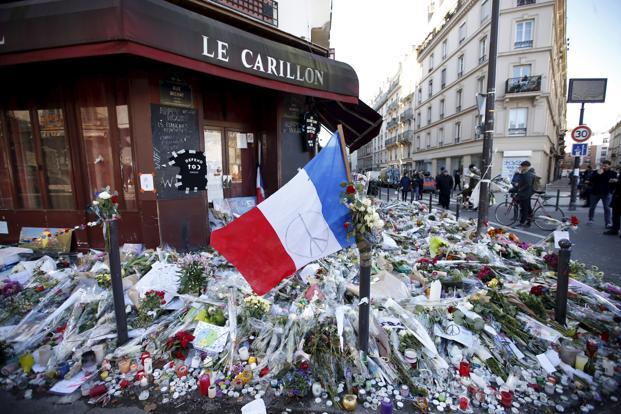By: Victoria Barker

On the day of the Boston bombing, the civil war continued in Syria and an explosion in Pakistan killed 15 people.
The recent bombings in Boston have stirred up a surge of nationalistic pride and the recognition of the good in humanity that oftentimes brings people together after a shocking tragedy. This is much akin to the weeks following the Sept. 11 attacks and the Sandy Hook Elementary School shooting. As I watched the news coverage of the search for the attackers and the subsequent stories that were making headlines, I could not help but think about the tragedy that strikes daily worldwide. On the same day that the world watched in utter shock as the devastation unfolded in Boston — a bloodied finish line, missing limbs, and the deaths of an 8-year-old boy, a 29-year old woman, and a Chinese exchange student who was taking advantage of every opportunity that America has to offer — news reports of a bombing in Pakistan that killed 15 people and the ongoing civil war in Syria also made headlines. These stories did not garner much coverage in comparison to the trauma in Boston, but they did receive more attention than they usually do. Attacks like this are the norm in Chechnya and other parts of the world where people live in constant fear. Why is it that people’s threat to security is only recognized when a threat is made to America’s security?
Devastation like that which occurred in Boston occurs on a daily basis in many parts of the world. Take, for example, the photograph message from the Syrian rebels to the people of Boston: “Boston bombings represent a sorrowful scene of what happens everyday in Syria. Do accept our condolences.” People’s security is constantly threatened, and these threats are almost always overlooked. Perhaps this can be seen as simply a liberalist approach, but maybe we should start paying more attention to security threats around the world in an attempt to prevent events like what occurred in Boston. Keep in mind that terrorist acts stemming from leaders in Dagestan, Russia resulted in the 2009 bombing of the high-speed train from Moscow to St. Petersburg as well as the 2011 bombing of Moscow’s Domodedovo International airport. Attacks similar to the one that occurred in Boston have taken place all around the world, yet rarely do we pay attention. Having faced countless accusations for meddling in the issues of other states perhaps we are like the older sibling that has been reprimanded a few too many times to stand up for justice. At what cost is this decision to remain mum acceptable? And at what cost does it inadvertently harm our security?
It was revealed on Saturday, April 20 that in 2011 Russia asked the FBI to investigate the older suspect, Tamerlan Tsarnaev, on suspicion of following radical Islam and preparing to leave the United States to “join unspecified underground groups.” After interrogation and probing, the FBI dismissed the suspicions of the Russian authorities, saying, “We didn’t find anything on him that was derogatory.” Did we overlook evidence that had the potential to prevent the havoc that was wrecked on Boston? Or it could be that the lack of evidence to sustain these suspicions allowed Tamerlan Tsarnaev to return to Dagestan in 2011 where many believe he was radicalized and began following jihad leaders. Not long after he returned from his six-month stay in Russia, his YouTube page surfaced featuring numerous jihadist videos that he had endorsed during his time abroad, including the preaching of Chechnya ideologue Abdul al-Hamid al-Juhani.
Dagestan and Chechnya are controversial territories within the Russian state. Chechnya, as a war-torn and poverty-ravished region, has become a breading ground for terrorism. Our leaders have been reticent in regards to the challenges and often regarded decisions made by the Russian government in response to these formerly displaced peoples as oppressive. At the start of the 2001 War on Terror, Russian leader Vladimir Putin waged a brutal counterinsurgency effort against separatists in the predominantly Muslim population of Chechnya in the south of Russia. Talks were focused on the counter-terrorism efforts in Afghanistan and Chechnya was quickly overlooked. Since this time, the United States “has kept and arm’s length from Russia’s battles in Chechnya” and our cooperation on security matters has dwindled as we grow increasingly farther apart on a multitude of issues, such as Russia’s domestic policies and the civil war in Syria.
Initial talks by authorities with the remaining suspected attacker, Dzhokhar Tsarnaev, alleged that the attacks were a result of the U.S. involvement in Afghanistan and Iraq. Only future investigations and more information will divulge the true motives behind the attacks, but until then Russia’s internal security conflict will likely remain in the limelight.
Perhaps the event in Boston will bring about change and broaden the lines of communication between Russia and the United States and will foster synchronized anti-terrorism efforts between the two countries. With tense relations thus far this year as a result of the Magnitsky Act, adoption ban, and recent list of banned officials to both countries, this cooperation has the potential to repair the relationship. Only time will tell the result of the media’s portrayal of the “Russian Brothers’” bombing on U.S.-Russia relations. On Thursday, April 19, Russia proposed a bilateral visa-free travel with the United States for 90-day trips. This was merely a few hours before the two suspects were identified and declared to be of Russian, specifically of Chechen, descent. Hopefully the skewed depiction will have negligible negative consequences and will instead foster cooperation.
It is possible that now is the time to head to words of Dr. Martin Luther King Jr.: “Injustice anywhere is a threat to justice everywhere.” Perhaps we must learn from Boston that threats anywhere are threats everywhere, even in a state that so often prides itself on being virtually untouchable.

